My relationship with television can at best be described as extremely abusive, where no amount of therapy and counseling can help me walk away from the hurt it keeps doling out. The arrival of the fall premier season marks all my despair as official. The kind of despair where it’s almost impossible to articulate your feels in anything but reaction GIFs. To commemorate this, a toast to some of the shows we tragically lost this year.
Take Bunheads, for starters. The more I think about it, the more I see Hubbell’s character as a possible metaphor for the entire show and its cancellation. It’s not a perfect one by any measure—I only wish we had had Bunheads showering us with unconditional love and expensive gifts for as long as Hubbell did for Michelle—but it’s true that the show was abruptly taken from us just as we had begun to open our hearts to it; just when we had begun to stare into its vast (though yet untapped) potential for brilliance. Like when we were still calling our best friends, gushing about our first night with a new love, slightly unsure how it would all pan out, but oh so optimistic about the possibilities.
There is such a dearth of good television focused on women that the cancellation of Bunheads hit me particularly hard. The filial bonds forged between Fanny, Michelle, and the girls drew an interesting parallel with those in the director’s previous venture, Gilmore Girls. These weren’t the people responsible for raising them, there was no history between these people like there was between Lorelai and Emily or Lorelai and Rory. Nevertheless, Fanny found another child to mother in Michelle, while Michelle discovered stability with Fanny, which helped her accept her often reluctant role as a parent to the girls. We had just started exploring these stories, these characters; the universe building was still nascent and ready to unfold, to watch the dance studio stage its first performance at the amphitheater, to see Michelle get her GED and the girls navigate high school drama, maybe even explore Mel’s sexuality (I would’ve loved to see how Amy Sherman-Palladino tackled a gay character), but most of all we wanted to see them pursue their dreams of making it big.
But alas, no more obscure pop-culture references hidden in crazy-paced dialogue. No more young women with differing body types as potential out-of-the-box role models. No more beautiful choreography and cinematography to grace my TV anymore. I guess I’m going to have to resort to fan-fiction now.
[media url=”http://www.youtube.com/watch?v=t7kV7fD9-Ew” width=”600″ height=”400″]I know everyone raves about Sasha’s performance in “Istanbul”, but “Picture in a Frame” made me melancholy for a character that died in the first episode and that’s a pretty darn special achievement.
Happy Endings
Before there was Friends, the quintessential hangout sitcom of Generation Y, there were the far superior Seinfeld and Cheers. While How I Met Your Mother (HIMYM) filled the gap Friends left behind, Happy Endings followed the more illustrious path set by Seinfeld. Finally, the jokes mattered more than the overarching storylines again. You had to watch the show twice to catch all of the jokes the writers threw at you, pause your screen multiple times while you continued laughing not wanting to miss the rest of the jokes. Not that the absence of serialized storytelling adversely affected the show. In fact, the pilot that focused on Dave and Alex’s storyline–the central story–is the weakest writing of the show and as soon as they moved on from that, everything about the show improved (including Alex).
The entire cast was pretty stellar, allowing the writers to switch pairings successfully beyond the initial setup and find that it worked spectacularly well every time. Alex and Max were the standouts, each inverting the most tired of tropes, The Dumb Blonde and The Gay BFF, written and played with a freshness that Ryan Murphy couldn’t even dream of.
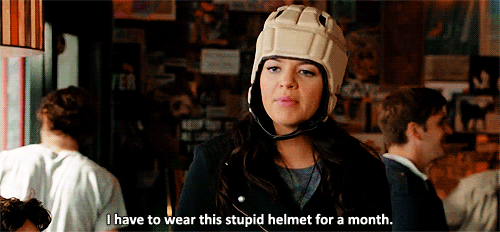
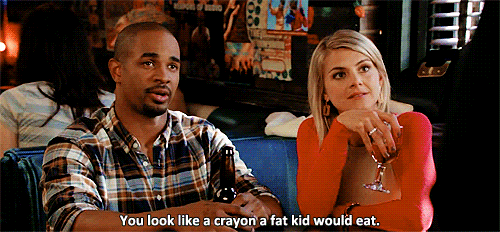
I’m going to miss this.
Don’t Trust the B– in Apt. 23
Krysten Ritter is one of those actresses whose presence alone I’d watch a TV show/movie for. Often cast as the sarcastic best friend of the lead, I was happy to see her front and center in a show that played to all of her strengths. Plus I’m a sucker for any show that has actors/actresses playing fictionalized versions of themselves, as James van der Beek of Dawson’s Creek fame did. Don’t Trust the B did not disappoint on either front.
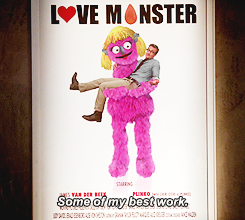
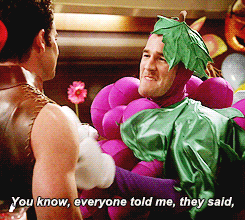
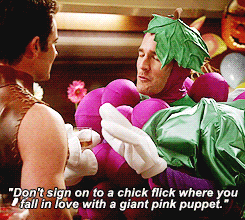
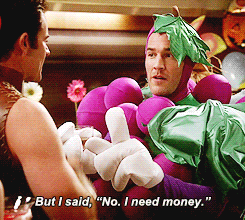
To be honest, this show was pretty much doomed from the start. Both the characters and the writing were catering to niche appeal rather than broader audiences, and ABC itself didn’t feel confident enough to market it as such. The show however stood out for its physical comedy and James Van Der Beek’s willingness to make fun of himself. It didn’t hurt that the show never tried to shame Chloe or her lifestyle, lets her celebrate her choices and changing her in to a “straight girl who see the lights and gives up on her partying ways.” was never the end-game. There was noticeable evolution of her character as well as June’s, they both help each other become better versions of themselves, but at the core they stay the same.
I’m glad we got two seasons of the show, that there was some resolution to June and Mark’s storyline, that Chloe turned out to have honest feelings, but true to character it wasn’t the right time for them, but most of all the canon was that they all needed each other as friends, to call them out on their crap, to help each other out in the most ridiculous of situations.
“Friendships must be built on the solid foundation of alcohol, sarcasm, inappropriateness and shenanigans.” And Don’t Trust the B– has the most solid of those foundations.
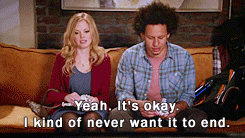
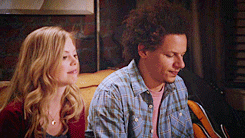
Shazia is part bionic, part crazy (parts not mutually exclusive), and would be happy conversing solely in TV quotes, forever hopeful she’ll be one-upped in her obscure TV references. She blogs here and microblogs here.
Â




